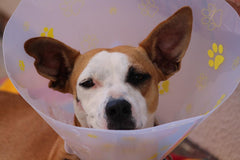
Since you know that probiotics can help maintain a healthy gut, you might wonder if they're safe and effective for cats as they are for dogs. Unfortunately, choosing the best probiotics for cats is not as straightforward as it may seem. Pet owners need to consider some factors before deciding whether or not their cat needs them.
An Overview of Probiotics for Cats

What are probiotics? If you've never heard the term before, here's a quick explanation. These are live bacteria that potentially encourage balance in the intestines. One study defines probiotics as
"live microorganism which when administered in adequate amounts confers a health benefit on the host."
In simpler words, it means the live bacteria might provide a health benefit for your cat. The same research shows the supplement might encourage normal immune system function, promote stress reduction, and offer protection against infection. Additionally, probiotics might help control allergic disorders and support healthy weight management.
Like humans, your feline family member can experience diarrhea, stomach discomfort, and vomiting. Along with stress disrupting the digestive system, some cats have habits that can increase gastrointestinal issues. For example, many felines develop excessive grooming patterns. This condition can result in your cat ingesting too much fur, resulting in vomiting and an upset stomach. Additionally, your pet can develop stomach issues at any point in its lifetime. Cats and humans have many similarities when it comes to gut health. So, similar to how probiotics help people, they might improve the wellness of pets, too.
However, even though humans and animals share these similarities, it doesn't mean they can take the same probiotics. Never give your pet supplements designed for people. These are different formulations and have the potential to be dangerous for animals.
Studies indicate this occurs because of an imbalance in the good and bad bacteria found in the gut. A healthy gastrointestinal system maintains regularity. Probiotics aren't cat vitamins. Instead, it's a supplement that provides good bacteria to help balance out the bad in the gut.
This reaction occurs because animals and humans have different bacterial strains that are helpful. Cats do best with bifidobacterium and enterococcus families. The bifidobacterium resides in the small intestines, and the enterococcus is found in the large intestine. Look for products that include both these strains for the best results.
What Are the Different Types of Probiotics?

Brands understand that pets can be challenging. If they suspect something is medicine or good for them, they'll shy away. So finding the right way to get your cat or dog to take these supplements is an integral part of the process. Probiotics are available in powders, pills, liquids, and tasty treats. On the topic of flavor, brands are developing more appealing products for your feline family member by infusing them with beef, fish, chicken, and other tastes they'll love.
Here are some easy DIY cat food recipes that you can try!
- DIY Salmon Patties for Cats and Dogs Recipe
- DIY All-Natural Cat Food Recipe
- DIY Spinach Loaf for Cats Recipe
The Best Probiotics for Cats

Pet owners considering fortiflora for cats can try Purina Pro Plan FortiFlora for Cats. The dietary supplement for felines. The liver-flavored formula promotes healthy digestive function with beneficial intestinal microflora.
For an easy-to-use probiotic, consider a liquid. For example, the Honest Kitchen Daily Boosters Instant Goat's Milk with Probiotic for Dogs & Cats is a shelf-stable product with digestive enzymes and probiotics derived from pasture-raised, free-ranging goats. Another reason this the brand's on the list of the best probiotics for cats is you can save money in a dual pet household by using it for dogs, too.
Another option is Hyperbiotics Pro-Pets probiotics for cats and dogs. The supplement comes in easy-to-swallow beef flavor micro-pearls. The non-GMO, dairy-free, gluten-free, premium probiotic supplement promotes gut health with six targeted strains. Each micro-pearl contains 3 billion colony-forming units.
Nom Nom Full-Spectrum Probiotic for Cats is designed by veterinary experts and developed using human-grade ingredients formulated for felines. The probiotic contains four strains. Nom Nom is a powder that also includes a prebiotic, fructooligosaccharide. It's safe for cats ages six weeks and older.
Benebac Plus Probiotic Pet Gel is a unique probiotics formula in a gel syringe that's easy-to-use and measure out specific dosages quickly. It contains 20 million CFU per gram and may relieve intestinal stress for cats. The blend is for more than feline pets. Benebac Plus Probiotic Pet Gel is also safe for dogs, hamsters, rabbits, ferrets, and guinea pigs.
How Do You Give Your Pets Probiotics?

For the best results, your cat should get the same dose daily. Stick to a schedule, so they take the probiotic every 24 hours. Follow the instructions on the label. If they won't eat the treats or have a problem with capsules, try breaking open the pills and mixing the powder with their dinner. For continuing problems getting your cat to take the supplement, consider food infused with probiotics. Similar to any food or treat, just feed a single serving at the same time every day.
Conclusion
It's common to wonder if cat vitamins and other supplements are necessary for your pet. Probiotics are safe to use when you follow the directions. They have the potential to improve your cat's quality of life. Additionally, fortiflora for cats might promote a healthy digestive system. However, if your cats on medication, probiotics might interfere with it. Always speak to your pet's veterinarian.
How do probiotics help cats?
Can fortiflora cause diarrhea in cats?
Can I give my cat dog probiotics?
Related Posts:
- Holistic Care: 5 Cat Health Alternatives You Need to Know
- Natural Diet for Dogs: How to Supplement It
- Joint Supplement for Dogs: How to Choose the Best One




